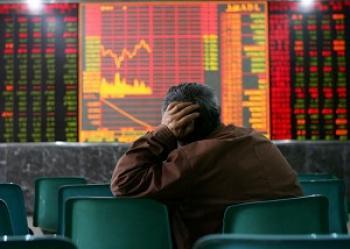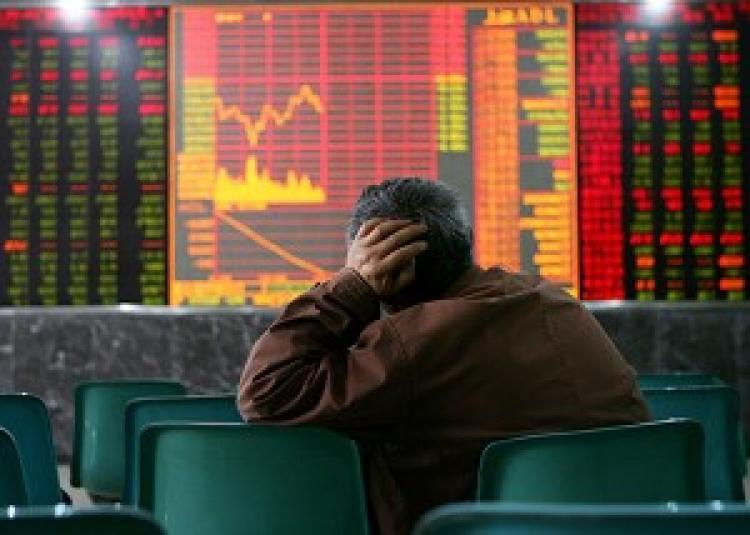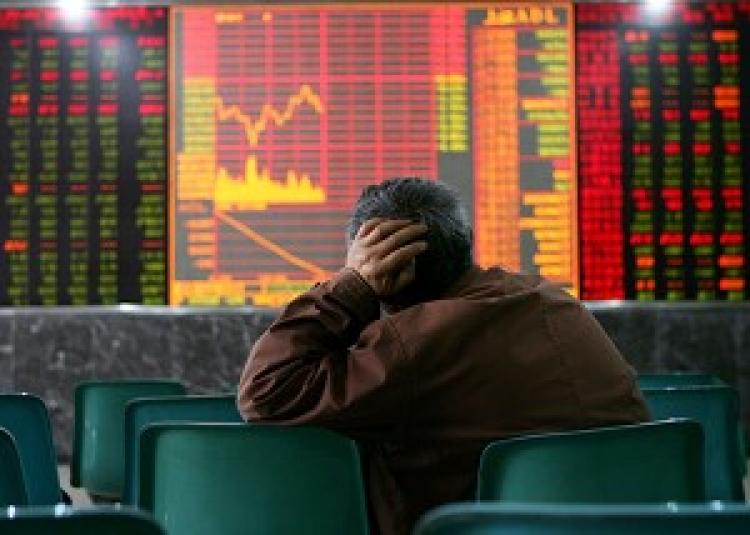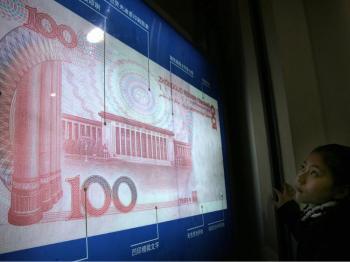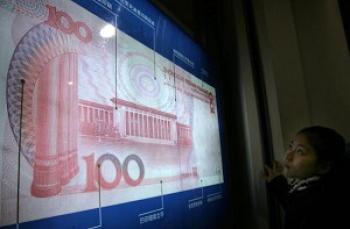China’s stock market plummeted to a Black Monday again on August 18. The benchmark Shanghai Composite Index closed at 2319.87, down 62 per cent from its high at 6124.04 in 2007. The Shenzhen Composite Index closed at 7833.09, down 60 percent from its high at 19600.03 in 2007.
A fall like this within ten months is rarely seen in the world. According to analysts, the trading volumes of the two stock exchanges were at a record low recently. The market is dominated by caution and pessimism.
Technical and fundamental criteria can no longer be used to predict the stock market index’s performance. If this is true, then perhaps we need to analyze the actual situation of China’s stock market.
Official Explanation for the Fall
Many economic reports published by China’s state-run newspaper cited the sub-prime loan crisis in the U.S. and the roaring oil prices as the major cause of the sharp fall in China’s stock market. This is much like the National Bureau of Statistics of China’s claim in a recent economic report that the price surge in the global market was the major driving force for inflation in China. It seems that with today’s economic globalization, problems in China’s stock market have a lot to do with global economics.
However, the United States, the source of the sub-prime loan crisis, only had an 11 per cent drop in the Standard and Poors Index, whereas China is the country that has suffered the greatest loss in stock market value in the world. Does the U.S. sub-prime loan crisis have the greatest impact on China’s market?
When oil prices soared, the stock market declined in countries that rely heavily on oil. However, Europe and the U.S. have never exceeded an 11 per cent loss in value. Does the oil price also have the greatest impact on China’s market? Besides, oil prices have already started to decline recently, yet China’s stock market continues to fall. Why did this happen?
It is generally recognized that tightening monetary policy by China’s Central Bank to prevent inflation is a domestic factor that caused the sharp fall in China’s stock market. Nevertheless, despite the Central Bank’s many increases in interest rates, the interest rate on people’s savings accounts is still negative compared to inflation. Under such conditions, as long as the market is stable, capital should still enter the stock market. In addition, capital liquidation is still high in the domestic capital market.
A Lack of Confidence
Recently, the Chinese government apparently realized this also, and has repeatedly emphasized that the stock market plummeted due to investors’ lack of confidence.
What the government said was right, about confidence. But the lack of confidence is the “consequence” instead of the “cause.” What should investors’ confidence be based on? How did investors lose confidence? I think the performance of the stock market in recent years should have indicated this to investors. Accordingly, whether it was the prediction of a future strong market, as claimed by high level officials and media; or even the renowned Chinese economist Wu Jinglian, who held the view that China’s stock market would suffer a great loss, but recently emphasized the sensibility of rescuing the market—the stock market simply did not react positively to any of these statements and continued to plunge. Over 90 percent of investors have lost money.
Other commonly mentioned factors are, for example, lifting of ban of non-tradable shares and Ping An Insurance’s plans for massive stock and bond offerings. These are not normal factors in the first place. Instead, these are a direct intervention of administrative power, which has caused the stock market to fall. Who approved these plans? Who made the decisions? Without the consent of the Securities Regulatory Commission, would China’s Ping An Insurance announce its massive offering plans on its own? And those unusually high IPO prices of some companies—can this happen without the consent of the Security Regulatory Commission?
The Truth about China’s Stock Market
The truth about China’s stock market is actually not a secret, and most investors probably already knew it. That is, China’s stock market is a tool used by the government to re-distribute and re-organize social wealth on a grand scale, which means that it is a tool to clean out Chinese people’s savings accounts. The biggest winners in this process are, of course, government officials and their relatives who are the most well-informed about the actual value and re-organizing plans of those that control state wealth; as well as institutional investors who collaborate with them and who rely on insider tips to control the stock market. Those people have already made huge fortunes in the process. This is the truth about China’s stock market.
Actually, the goal of China’s stock market was not purely an economic one when it was originally established. When former Premier Zhu Rongji set up stock market in Shenzhen, he said that China’s stock market was meant to get money--to get money in the market and give it to companies that were unable to get money, and because these companies were unable to make money, they needed monetary support.
In Western countries, a fundamental criterion to allow a company to be listed is that the company must have performed well for at least three years while meeting other standards. The company must obtain approval from the Securities Regulatory Commission prior to issuing stock. Under supervision, the issued stock can also be pulled from the market to ensure and safeguard in particular small and medium sized investors.
China’s stock market has been established to operate like an ATM for the listed companies. For the majority of the listed companies, economic reform is nothing but a mechanism to trap money. Many heavily indebted State-owned companies have been listed in the stock market after re-packaging. All of a sudden, they become the new stars in the market with easy loans and finance. The foundation of a stock market is the listed companies. With a weak foundation, how can any high stock price be affordable? The deflation in stock prices is therefore predictable.
Other than the fact that the listed companies would benefit from the weak structure in the Chinese stock market, the true “beneficiary” of this contrived structure is the “interest group” who would profit from the initial establishment of a listed company and the trading thereafter. As for the investors, China’s stock market serves to mentally “entertain and exercise” them. It gets investors far more emotionally involved than any intellectual game could hope to.
In an interview after the market dived for several days prior to the Olympics, economist Tang Min points out that, “No economists can make sense of China’s stock market.”
“I’d advise the investors to give up the illusion that the government would restore the stock market or that the market will rebound. Escape China’s stock market while you can. If you insist on trying to profit from it, go ahead. However, do not complain if you are drained empty.”
Some say that entering China’s stock market is like gambling. That would be over-estimating the capacity of the Chinese stock market. Gambling relies on luck, and sometimes strategies—it still has fairness in it. However, China’s stock market is a manipulated and systematic black market. The majority of Chinese investors seem to have gradually recognized this. This could suggest that the end of this massive robbery is near.
Can China’s Stock Market Be Independent of the Government?
Since the fall of China’s stock market, investors have been very disappointed in the government for not rescuing the market. Some investors complain that when the U.S. stock market fell 10 per cent, the U.S. government invested 200 billion dollars to save the market. However, China’s stock market has fallen nearly 50 per cent, and yet, the Chinese government has taken no action. According to Chinese Finance magazine, “China’s stock market cannot, could not, and should not be saved.” This might be consistent with the ideas of many experts and economists, that is, it is better for the government not to intervene in the market. However, can China’s stock market truly be a market independent of policy and the authority (administrative power)?
This is a challenge to the current system. First of all, the major and powerful players of the listed companies in China’s stock market are so-called State-owned businesses. According to the Chinese legislature, the State Council is the ultimate representative of the State-owned properties. But, both the China Securities Regulatory Commission and the China Banking Regulatory Commission are agencies under the umbrella of the State Council. This is like a football game where the government is both the referees and the athletes. Furthermore, the government is also setting the rules and changing the rules. Who would believe that independence or fairness in the stock market will ever exist?
Secondly, many influential economists in China are also the independent directors of many listed companies; some are even connected to the company financially. Many CEOs of major listed companies and funds are also members of the Securities Commission, Exchange Commission, and other government agencies. How can China’s stock market remain untainted from these complicated and complex relations and prolific insider trading, pushed stock prices, and administrative manipulations harbored in the system?
Furthermore, a significant factor of a capital markets is fairness, which is ensured by the free flow of information, and relies on media freedom. In China’s stock market, analysts serving in the media are those who pass the official qualification exam. Those who don’t “obey” will have a hard time passing such an exam. Moreover, there are rules to follow in the Chinese media. The analysis must comply with those rules. Didn’t CCTV’s economy program get shut down because of a few “honest” words? Ordinary shareholders can do nothing but follow the rules. It would be a miracle if the shareholders did not end up losing money.
Shi Hanbin, a Shanghai finance expert said, “However, I hoped the August 8 Olympic Opening Day would save the market.” I have said it before: “Always analyze based on the true interest, discard any expectation, and stay completely cold-blooded to maintain a complete calm. Obviously, I have not reached that level myself. I have ignored a key factor: The atheist [cadre] knows no limits.”
Shi’s sentence might be the most fundamental answer to the current market’s situation.
Read this article in Chinese
